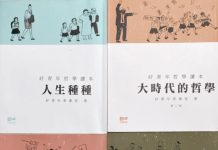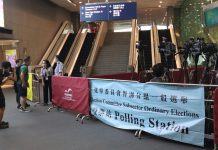Michelle Wong Chin-ying, a first-year CUHK medical student, attended International Christian School (ICS) for her primary and secondary education. ICS adopts the American curriculum and allows for students to take the Advanced Placement (AP) courses and exams. The AP course is a college-level exam. Wong graduated with seven AP courses: Chinese, chemistry, physics, world history, biology, psychology, and calculus and statistics.
Even though Wong took AP Chinese, she still struggles with communicating in Chinese. She says AP Chinese was very basic because it was designed for Americans, but almost everyone in her school took it. “It is one thing that I can speak Cantonese,” she says. “But communicating with locals can be kind of challenging at times. I don’t really understand what they are saying.”
When explaining her knowledge of local affairs and culture, she says there was little discussion of Hong Kong news at her school and more emphasis was placed on international or American news. Wong says her school did not include any subjects or activities that expose students to local culture. She can only recall there was a Chinese club where students would write Chinese New Year couplets.
While some local families are keen to give their children an international perspective by putting them in international schools, Jacqueline Renee Cohen, an American mother of two, decided to send her children to Ho Yu College and Primary School, a local primary school. Cohen’s family moved to Hong Kong from Beijing where her children attended a local kindergarten and learnt fluent Putonghua. Some of her friends expected her to find international schools for the children where they would continue to learn Chinese in Putonghua.
But after arriving in the city, Cohen decided that in order for them to truly integrate into Hong Kong society, the children should learn Cantonese and understand local culture.

“We live in Hong Kong. We all have permanent ID cards. We are going to be here for a long time,” Cohen says. She believes knowledge of the local language is the key to access to the local community. Her children, now aged 10 and 11, can speak fluent Cantonese and read and write Chinese.
Apart from the language environment, Cohen’s children also get to study alongside children from a wider range of Hong Kong families, rather than those from families who can afford the high fees and debentures of international schools.
When it comes to competitiveness in the job market, human resources experts say it is hard to say whether graduates of local schools or international schools have the upper hand. Armstrong Lee, the director of Worldwide Consulting Group, explains that Hong Kong companies still pride English proficiency over Cantonese. However, proficiency in Mandarin and Chinese is quickly taking on more importance, given the business sectors’ interactions with the Mainland.
Mark Leung Yue-kiu, a final-year student in CUHK’s Geography and Resources Management Department, has discovered this the hard way. He recalls his experience of taking an entry examination for a graduate level job at the Hong Kong Trade Development Council which required him to write a letter of invitation in Chinese. A former international school student, writing in Chinese is a problem for him, so he wrote very little.
Some families make sacrifices to send their children to international schools because they believe it will give them an edge. But it seems that these days, the international advantage can sometimes be a double-edged sword.
Edited by Verena Tse






































